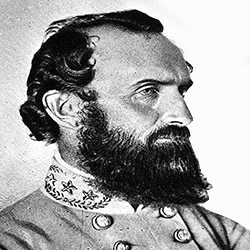The purpose of Newson Publishing is to relay history in an enjoyable way.
Fiction, as someone once said, lies to tell the truth. Sometimes stories enliven historical facts. This is historical fiction’s purpose. Of course, it is important to distinguish fact from fiction so that history is not distorted. Newson Publishing books contain historically accurate side bar notes in addition to the fictionalized stories. Yet fictionalized stories of the very real people who participated in and made history may lend us special insights to tell the truth so we can get to the essence of the people involved.
Over the years scholars have postulated a number of theories about what Harriet Beecher Stowe was trying to say with her seminal novel Uncle Tom’s Cabin. Aside from the obvious themes, such as condemning slavery, Stowe spoke through her characters on other themes as well, including through the famous character Uncle Tom.
Uncle Tom was not the culprit in Uncle Tom’s Cabin. Uncle Tom was a brave man with dignity who cared about his family and race. He was a man of loyalty and of his word. Because he had given his word of honor to return to his Southern master after a trip that could have led to his freedom, Tom returned to slavery. When later in the book the vile overseer has Tom whipped for an imaginary infraction, Uncle Tom does not fight back. In fact, he fights in prayer for the souls of his tormentors and dies a death so Christ-like, his very torturers are converted on the spot. To be stricken and not strike back takes tremendous courage. We should all be such Uncle Toms.
No one exemplified this kind of courage better than Dr. Martin Luther King, who said: “Cowardice asks the question: is it safe? Expediency asks the question: is it political? Vanity asks the question: is it popular? But conscience asks the question: is it right? And there comes a time when one must take a position that is neither safe, nor political, nor popular – but one must take it simply because it is right.” Dr. King’s words and actions were not those of a fearful man, unwilling to take risks and who submitted to an unjust society. That is the traditional understanding of an “Uncle Tom,” and indeed Dr. King was called an “Uncle Tom” by fiery young black leaders. Yet in fact, Dr. King sacrificed his own safety to challenge a nation to believe in its own Declaration of Independence, that all are created equal.
This brave man changed society in ways that those who called him an “Uncle Tom” could not. Some black leaders labeled Dr. King this way, never understanding that his courage and conviction paved the way for them to gain an audience with white America.
Sometimes we are our own worst enemies. When people misinterpreted the greatness of the character of Uncle Tom, when they called Dr. King submissive and servile in Uncle Tom’s name, and even today, when music industry rappers portray black women as b*tches and their brother as n#gg#rs, they are undermining the march toward a common humanity that embraces black and white, male and female, and all different socio-economic classes and ethnicities. It is they who are truly cooperating with oppression and using every opportunity to undermine and degrade other blacks rather than uplifting them.
Newson Publishing is committed to do a series of Uncle T books that showcases human relationships on a one-on-one basis that moves far ahead of race and political correctness and helps us to understand the motives of people in history and in our own day. Things are not all “black and white” in either history or contemporary society. We are all part of humanity, struggling to find meaning, purpose, and dignity–a struggle we will only win if we work together.
Our stories are about marginalized groups which now are just beginning to emerge, and the outlines of their stories remain dim. Putting the marginalized people of history into dramatic situations (often no more dramatic than the real circumstances they faced) and fictionalizing their lives by contrast is how Newson Publications hopes to inspire young people to take a deeper, second look at history. We hope to bring history to life through dramatic and meaningful story-telling accompanied by stunning art work that is available both as artwork illustrations within the books, ebooks, and as wall display poster prints suitable for framing.
Uncle T and the Uppity Spy is a young adult Civil War story, 58 pages long in the hard version. Based loosely on historical events and people, it is in no way meant to be historically accurate. It is intended to be an exploration of the concept of “field slaves” and “house slaves” first articulated in the speech “Message to the Grass Roots” by Malcolm X in Detroit, Michigan on November 10, 1963.
The leading characters of the story are black twin boys; Jim and Tyler Lewis are slaves in the antebellum South who are raised in the household of the military hero Thomas “Stonewall” Jackson after their mother dies in childbirth. Jim Lewis a historical, real black Confederate and was a loyal servant to General Thomas Stonewall Jackson and others.


